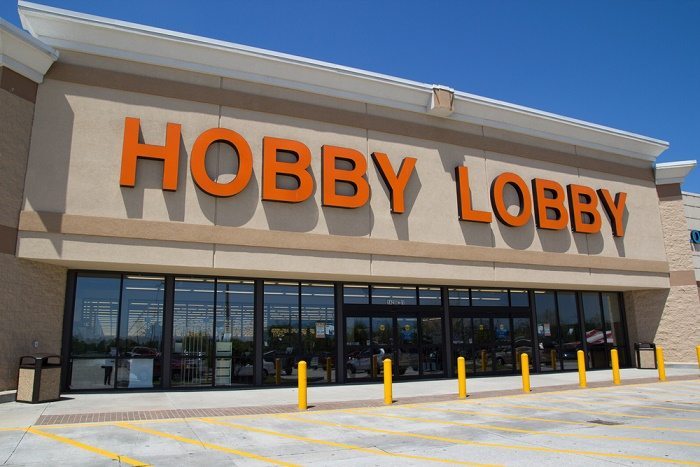Remember: Hobby Lobby Turns to God to Resolve Employee Disputes
Employers and companies are increasingly relying on the Bible over the Constitution when major disputes arise, a recent New York Times investigation finds.

Employers and companies are increasingly relying on the Bible over the Constitution when major disputes arise, a recent New York Times investigation finds. And as Rewire uncovered last year, arts-and-crafts chain Hobby Lobby is one such corporation that forces its employees to sign binding arbitration agreements and gives them the option of choosing secular or Christian arbitration.
The New York Times has investigated how corporations have helped forge a “privatization of justice” by forcing employees and customers to sign contracts forfeiting their right to sue and instead agreeing to resolve a dispute—even one as serious as a medical malpractice claim—in what’s known as arbitration.
In many cases, these disputes are mediated by attorneys who represent arbitration firms. Today, many religious institutions like churches and schools—and in some cases, for-profit companies—require parties to resolve their disputes before a Christian arbiter, following biblical law.
On the heels of Hobby Lobby’s landmark victory last year—after the U.S. Supreme Court ruled that the multi-billion-dollar company could deny its employees insurance coverage of certain contraceptives on religious grounds—Rewire reported that in 2012, a former employee at a Hobby Lobby store in Flowood, Mississippi, sued the chain for allegedly firing her when she asked to take medical leave to give birth and attend to her newborn baby.
But when the employee, Felicia Allen, sued Hobby Lobby for pregnancy discrimination, she hadn’t realized that she had signed away her rights to sue upon taking the job. The court dismissed her lawsuit.
Hobby Lobby allows its employees to select an arbitrator from the secular American Arbitration Association or the Institute for Christian Conciliation, run by the Montana nonprofit Peacemaker Ministries. One of the principles that drives the “Christian conciliation” that Peacemaker Ministries administers is that “Christians are not free to sue other Christians, at least not until they have exhausted the process that Jesus sets forth in Matthew 18:15-20 and 1 Corinthians 6:1-8,” according to Peacemaker Ministries’ website.
Though there are arguments for and against faith-based arbitration, one of the ironies of this story, aside from Hobby Lobby’s public posturing when it comes to protecting the unborn, is that the corporation sued all the way to the highest court of the land to avoid complying with the reproductive health insurance benefits in the Affordable Care Act (ACA).
As the New York Times notes in its investigation, some religious organizations follow their mandated religious arbitration process until they lose, and then they ask secular courts to overturn faith-based judgments.
The Supreme Court will soon review what has been referred to as the “next Hobby Lobby case,” that has the potential to further expand how nonprofits and businesses can use religious freedom claims to avoid complying with federal law.
The Court will review seven cases in which religious groups and universities are arguing that completing a form to allow their employees to obtain contraceptive coverage elsewhere still violates their rights under the Religious Freedom Restoration Act, because it makes them complicit in a sinful act: participating in providing contraception access.
Hobby Lobby’s owners are embroiled in their own legal troubles, this time with the federal government. The Green family has been under federal investigation for four years for importing potentially illegally acquired ancient cuneiform tablets, the Daily Beast recently reported. The Greens have collected these artifacts for its Museum of the Bible, which they are working to open in Washington, D.C., by 2017.
The investigation could go in many directions, but it’s unlikely the government will agree to resolve the matter before Christian arbitrators.
